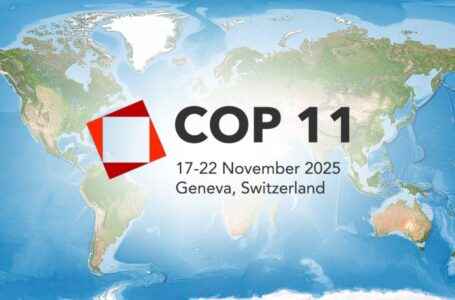Filipino tobacco farmers are sounding the alarm over proposed measures by the World Health Organization (WHO) that they warn could obliterate their industry and devastate communities.
As the WHO Framework Convention on Tobacco Control (FCTC) 11th Conference of the Parties (COP) approaches, the Philippine Tobacco Growers Association Inc. (PTGA) view the proposals in the Expert Group Report’s Agenda Item 4.1 as an existential threat to the sector.
The proposed actions include ending government support for tobacco farming, curbing suppliers’ profits, halting commercial sales of tobacco products and setting manufacturing and import quotas with periodic reductions.
“The extreme measures proposed in Agenda Item 4.1 are a direct threat to our livelihoods. If implemented, they will not only destroy farms but also devastate entire communities,” PTGA president Saturnino Distor said.
The PTGA represents 50,000 farmers nationwide. However, the National Tobacco Administration states the tobacco sector provides jobs for over 2.1 million Filipinos.
Distor urged COP delegates to carefully assess the social and fiscal impact of these restrictive policies, emphasizing the sector’s economic significance through employment, exports and excise taxes.
He cited the Department of Agriculture’s Sustainable Tobacco Enhancement Program (STEP), which aims to secure long-term livelihoods by promoting sustainable farming and linking local tobacco production to the demand for alternative nicotine products like vapes and e-cigarettes.
Farmers fear Agenda Item 4.1 focuses on prohibition over practical solutions. They point to countries such as the United Kingdom, Japan and Sweden where smoke-free alternatives have successfully reduced smoking rates.
Distor also noted declining domestic demand for tobacco, with 80 percent of products sold abroad, and rising competition from cheap illicit cigarettes, worsened by higher taxes on legal products.
With 183 countries sending delegates, the outcome of the COP will determine the future of the Filipino tobacco industry.
“We urge the COP delegates to reject policies that kill livelihoods,” Distor said.

He said that any future tobacco control policy should strike a balance between public health and the economic realities of millions of farmers and workers whose lives depend on this industry.
The Philippines has already enacted laws to regulate smoke-free alternatives, reflecting the importance of providing smokers with less harmful options. Critics argue that WHO FCTC policies have been overly restrictive, while advocates stress the need for harm reduction strategies to benefit the global smoking population.



















